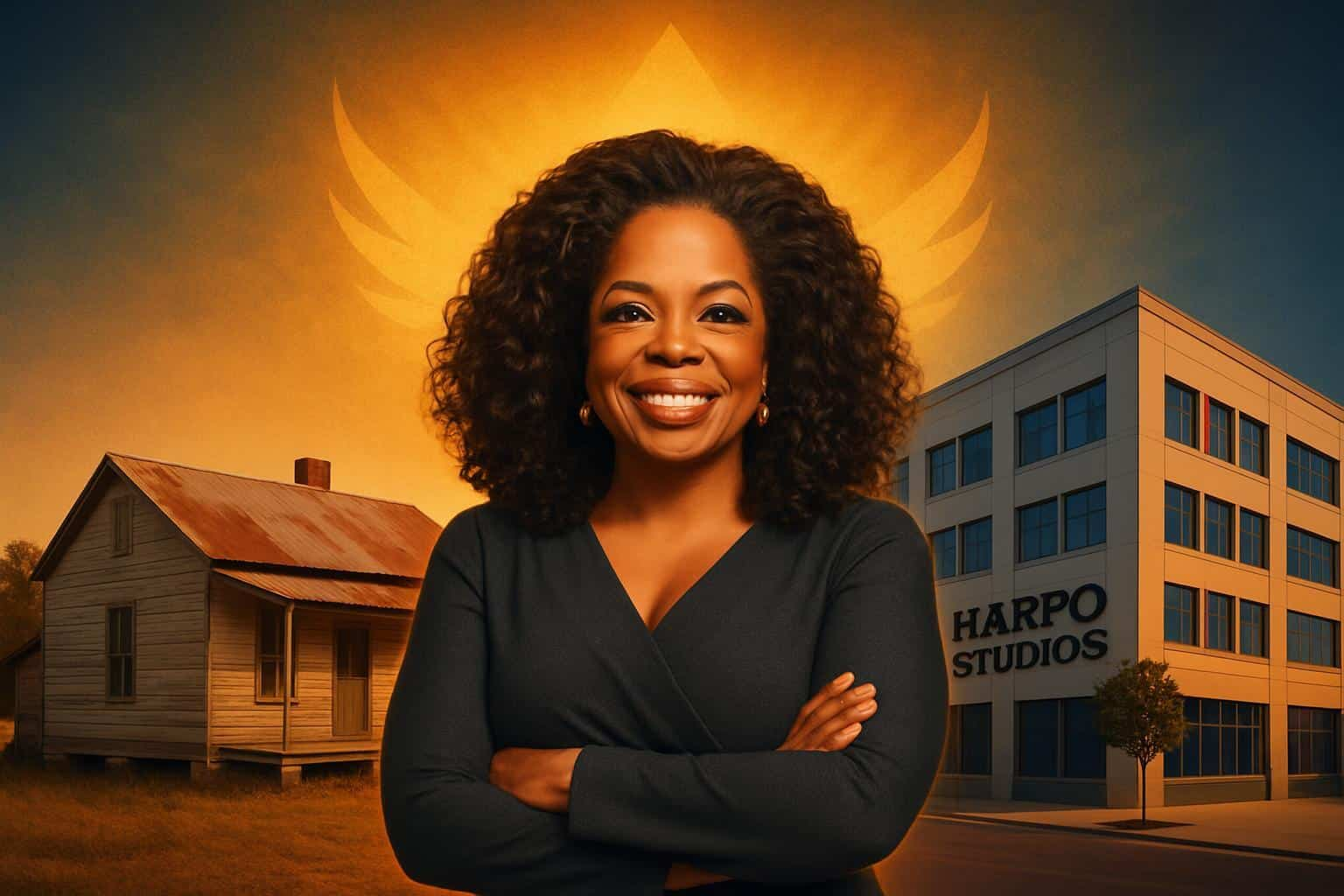Table of contents
- Early Life & Struggles: A Childhood Marked by Poverty and Pain
- Turning Points: The Moments That Changed Everything for Oprah Winfrey
- Breakthrough Success: From Chicago to Global Phenomenon
- Key Business Moves: Building a Billion-Dollar Empire
- The Ownership Revolution: Controlling Her Destiny
- Strategic Diversification: Building Multiple Revenue Streams
- The Magazine Empire: O, The Oprah Magazine
- The Book Club Phenomenon: Transforming Publishing
- The Weight Watchers Investment: Strategic Partnership Success
- The OWN Network: Building a Television Empire
- The Billionaire Achievement: Reaching the Pinnacle
- Legacy & Lessons Learned: The Enduring Impact of an Extraordinary Life
- A Legacy That Transcends Wealth
- The Transformation of Daytime Television
- Educational Impact and Literacy Promotion
- Philanthropic Leadership and Social Impact
- Breaking Barriers and Creating Opportunities
- Lessons in Resilience and Transformation
- The Power of Authenticity in Business and Life
- The Service-First Philosophy
- Lessons for Entrepreneurs and Leaders
- A BLUEPRINT OF TRANSFORMATION
How a girl born in rural Mississippi poverty became the world’s most influential media mogul and first Black female billionaire. This is the story of Oprah Winfrey.
In the pantheon of American success stories, few narratives are as compelling or inspiring as that of Oprah Winfrey. Born into crushing poverty in rural Mississippi, subjected to unthinkable abuse, and facing seemingly insurmountable obstacles at every turn, Oprah Winfrey defied all odds to become not just a household name, but a global icon worth over $3 billion. Her journey from wearing potato sack dresses as a child to commanding a media empire represents one of the most remarkable rags-to-riches transformations in modern history.
Today, Oprah Winfrey stands as the richest self-made Black woman in America, ranked #1214 on Forbes’ global billionaire list with a net worth of $3.1 billion. But her story is about far more than money—it’s about the power of resilience, the importance of education, and the transformative potential that lies within each of us, regardless of our circumstances. Her life proves that with determination, authenticity, and an unwavering commitment to serving others, even the most disadvantaged among us can rise to extraordinary heights.
This is the story of how a little girl who was mocked for wearing dresses made from potato sacks became the “Queen of All Media” and one of the most influential women in the world.
Early Life & Struggles: A Childhood Marked by Poverty and Pain
Born Into Adversity
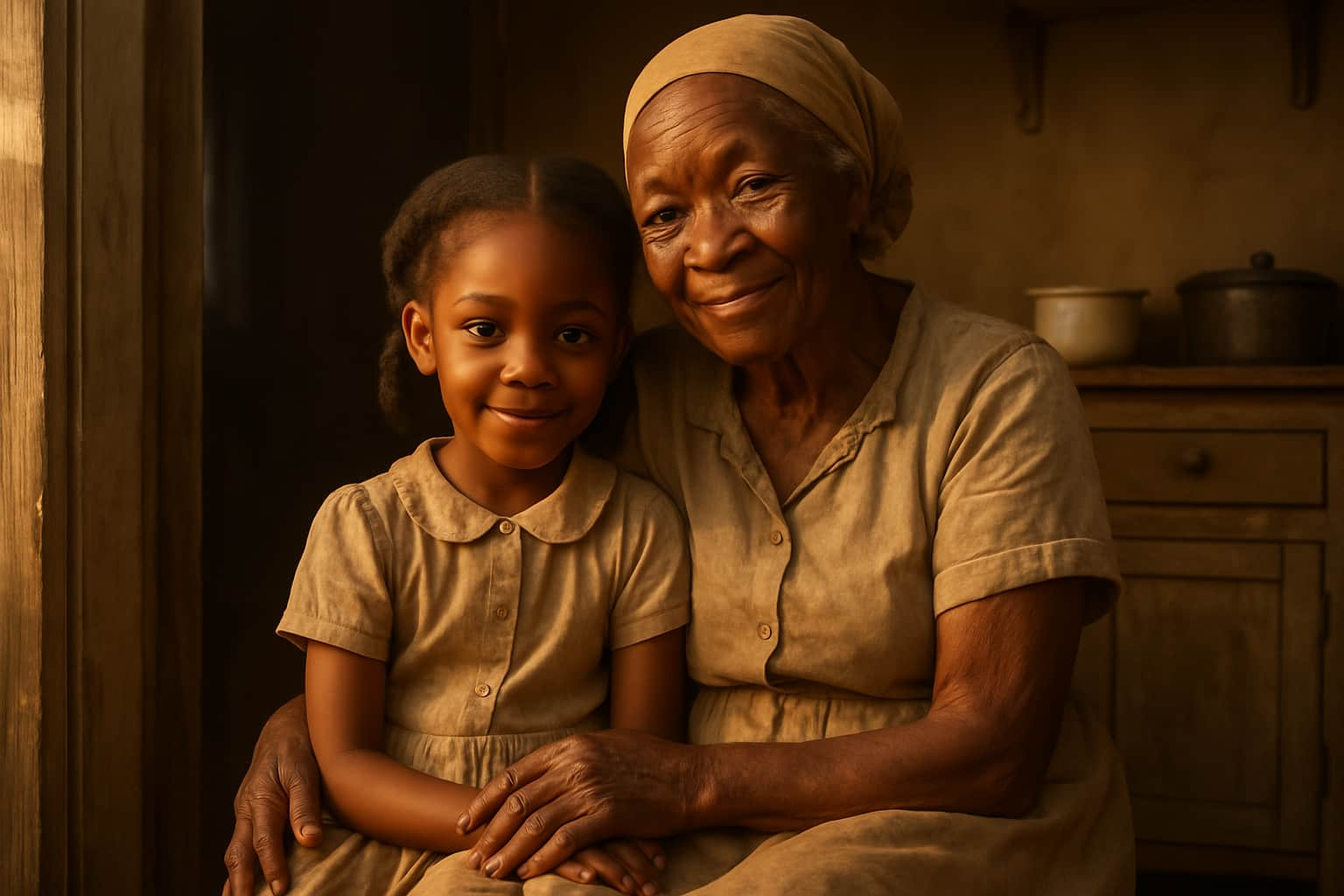
On January 29, 1954, in the small town of Kosciusko, Mississippi, a baby girl was born who would one day change the world. Originally named Orpah after the biblical figure in the Book of Ruth, the child who would become known as Oprah Winfrey entered a world that seemed determined to keep her down. Her parents, Vernita Lee and Vernon Winfrey, were unmarried teenagers—her mother just 18 years old and working as a housemaid, her father a coal miner who was serving in the Armed Forces when she was born.
The circumstances of Oprah’s birth set the stage for a childhood that would be defined by instability, poverty, and trauma. Her parents never married, and shortly after her birth, her mother traveled north seeking better opportunities, leaving baby Oprah in the care of her maternal grandmother, Hattie Mae Lee, on a small farm in rural Mississippi.
Life with Grandmother: Poverty and Harsh Discipline
For six years, Oprah lived with her grandmother in extreme poverty, in conditions almost unimaginable today. The farmhouse had no running water. The family was so poor, Oprah often wore dresses made from potato sacks. Other children mocked her appearance, causing deep shame and lasting emotional scars. These early humiliations, however, would help develop her empathy and emotional depth. That compassion later became a cornerstone of her ability to connect with people worldwide.
Despite the poverty, her grandmother Hattie Mae Lee gave Oprah two life-changing gifts: literacy and faith. Oprah learned to read before age three, a sign of her sharp mind and curiosity. In church, she earned the nickname “The Preacher” for passionately reciting Bible verses. These early experiences revealed her remarkable public speaking talent. They foreshadowed the future voice that would inspire millions. Her grandmother’s influence helped shape the confident communicator she eventually became.
Still, life with Hattie Mae was far from gentle. She strictly followed the saying “spare the rod, spoil the child.” Oprah was beaten nearly every day, a norm in that time and place. This constant discipline added new layers of pain to her childhood. Yet even through fear and trauma, Oprah began developing deep emotional resilience. That inner strength would help her endure—and overcome—even greater hardships later in life.
Milwaukee: A Descent into Darkness

At age six, Oprah’s life took another dramatic turn when she was sent to live with her mother, Vernita, in an inner-city neighborhood in Milwaukee, Wisconsin. What should have been a reunion with her mother instead became a descent into a nightmare that would haunt Oprah for years to come. Vernita worked long hours as a maid and was often absent, leaving Oprah vulnerable and largely unsupervised.
It was during this period that Oprah experienced some of the most traumatic events of her childhood. Starting when she was just nine years old, she was repeatedly molested by male relatives and a family friend. The abuse continued for years, with young Oprah having no one to turn to and no way to escape her tormentors. When she finally found the courage to speak about the abuse years later, family members refused to believe her account, adding betrayal to an already devastating experience.
The trauma of sexual abuse sent Oprah down a dangerous path of self-destructive behavior. She began acting out, running away from home, and engaging in promiscuous behavior as a way of coping with her pain. At age 13, after suffering what she described as years of abuse, Oprah ran away from home. The following year, at just 14 years old, she became pregnant. Her son was born prematurely and died shortly after birth—a loss that would affect her deeply for the rest of her life.
Educational Struggles and Glimmers of Hope
During this tumultuous period, Oprah’s education suffered significantly. She attended Lincoln Middle and High School in Milwaukee, where her poverty was a constant source of embarrassment. Through the Upward Bound program, she was transferred to the more affluent suburban Nicolet High School, but this only served to highlight the vast gulf between her circumstances and those of her classmates. She was continually reminded of her poverty as she rode the bus from the inner city to the suburban school, feeling like an outsider in both worlds.
Despite these challenges, there were occasional glimpses of the extraordinary potential that lay within this troubled teenager. Her natural intelligence and speaking ability occasionally shone through, earning recognition from teachers who saw something special in her. However, the trauma and instability of her home life made it difficult for her to fully focus on her studies or believe in a better future.
The Weight of Trauma
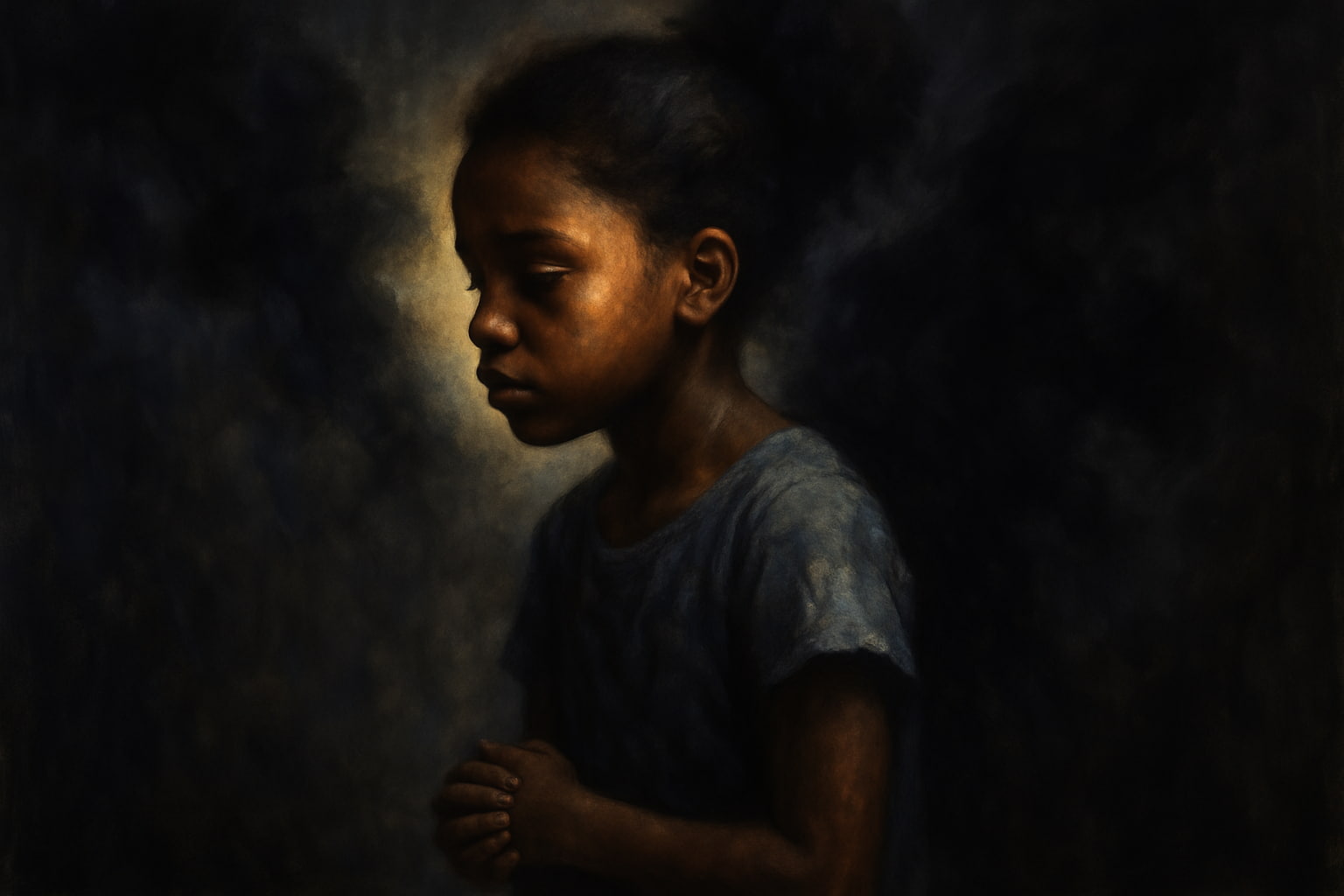
By her early teens, Oprah carried the weight of experiences that would have broken many adults. She had endured extreme poverty, physical abuse, sexual trauma, teenage pregnancy, and the loss of a child. She had been shuffled between homes and caregivers, never experiencing the stability and unconditional love that every child deserves. The psychological scars from these experiences ran deep, affecting her sense of self-worth and her ability to trust others.
Years later, Oprah reflected on this painful chapter with striking honesty and depth. She spoke openly about how the abuse shaped her. It influenced her understanding of power, pain, and vulnerability. Most importantly, it gave her deep empathy for others who had suffered. But during that time, she was just a broken teen. She had no hope, no clear future, and carried unbearable emotional weight.
Oprah’s early years remind us how circumstances can define the start of our lives. She was born into poverty, abandoned, and abused. Neglected by those meant to love her, she had every reason to fail. Yet she didn’t. She endured, learned, and grew. That she rose at all speaks to the strength of the human spirit. Her survival and success prove how powerful opportunity and resilience can truly be.
Turning Points: The Moments That Changed Everything for Oprah Winfrey
The Nashville Rescue: A Father’s Intervention
The most pivotal moment in Oprah Winfrey’s life came when she was 14, pregnant, and overwhelmed by struggle and despair. Her father, Vernon Winfrey, made a life-changing decision that saved her future. After losing her premature son, Oprah moved to Nashville—a shift that completely changed her life’s direction.
Vernon Winfrey brought stability, discipline, and strong values that Oprah had lacked. A hardworking barber and city councilman, he deeply valued education and growth. When Oprah arrived in Nashville, he gave her the structure she desperately needed. He offered consistency, responsibility, and belief in her ability to improve.
The transformation came quickly and powerfully. Under Vernon’s firm but caring guidance, Oprah began to thrive like never before. He demanded academic excellence and daily book reports. For the first time, someone believed in her potential. That belief—and accountability—became the foundation for her future success.
Academic Excellence and Early Recognition

The change in Oprah’s academic performance was truly remarkable. Once a troubled teen in Milwaukee, she became an honor student in Nashville. Her intelligence, no longer hidden by trauma, began to flourish. She thrived in her studies and joined school activities. Slowly, she rebuilt the confidence lost during her painful childhood.
By age 17, Oprah’s talent for public speaking was gaining formal recognition. People had first noticed it when she was called “The Preacher.” She began winning dramatic recitation awards for her expressive and powerful voice. Her presence commanded attention, and her words deeply moved others. It was clear she could connect emotionally with an audience.
Her transformation peaked when she won Miss Black Tennessee. Just years before, she had been a runaway facing immense pain. The pageant win was more than a title. It affirmed her journey from trauma to triumph. Oprah had become a confident, gifted young woman with limitless potential.
First Steps into Media: The Radio Opportunity
While still in high school in Nashville, Oprah got an opportunity that would shape her future. She was hired at a local radio station. Her natural voice and engaging personality quickly made her stand out. This early media exposure gave her real-world experience. It helped her build the foundational skills she’d need in her broadcasting career. The role also gave her insight into the industry she would eventually lead.
The radio job offered more than just experience—it gave Oprah confidence in her abilities. For the first time, she was paid to do what she did best. She connected with people and made them feel seen and heard. This validation boosted her belief in her career potential. Despite media being dominated by white men, Oprah saw possibilities for herself. The opportunity helped her envision a future few thought possible for a young Black woman.
The College Years: Continued Growth and Recognition

Oprah’s academic success in high school earned her a full scholarship to Tennessee State University, a historically Black college. There, she found more chances to develop her voice and grow as a communicator. She continued to excel academically while gaining hands-on experience in broadcasting. These opportunities helped her refine the skills that would later define her media career. Her passion for communication became even clearer during these formative college years.
At 19, while still a student, Oprah reached a major milestone. She became co-anchor of the local evening news at WLAC-TV in Nashville. This made her both the youngest and the first Black female news anchor at the station. The achievement signaled a new chapter in her groundbreaking career. It was an early sign of the many barriers she would go on to shatter in media.
The Baltimore Experience: Finding Her True Calling
In 1976, Oprah made a pivotal move by transferring to WJZ-TV, the ABC affiliate in Baltimore, Maryland. She was hired as a news anchor but soon found the job didn’t align with her personality. The traditional journalism style demanded emotional distance, which Oprah struggled to maintain. She became too invested in the stories she covered, making objectivity difficult. This mismatch left her feeling disconnected from the role and questioning her place in the newsroom.
However, that setback became a turning point in her career. In 1977, she was reassigned to co-host People Are Talking, a morning talk show. This format perfectly suited her natural charisma, warmth, and conversational style. Oprah’s empathy and spontaneity allowed her to bond with guests instantly. Her ease with emotional subjects created a unique connection rarely seen on local television. Viewers quickly responded to her authenticity and charm.
The show’s success came quickly and transformed Oprah’s trajectory. Her emotionally driven interviews introduced a more personal, engaging talk show format. Audiences saw themselves in her guests and felt deeply connected. By the late 1970s, People Are Talking was outperforming Phil Donahue’s show in local ratings. Oprah had become a rising star, redefining what daytime television could be and laying the groundwork for her national breakthrough.
Breakthrough Success: From Chicago to Global Phenomenon
The Chicago Gamble: A Career-Defining Move
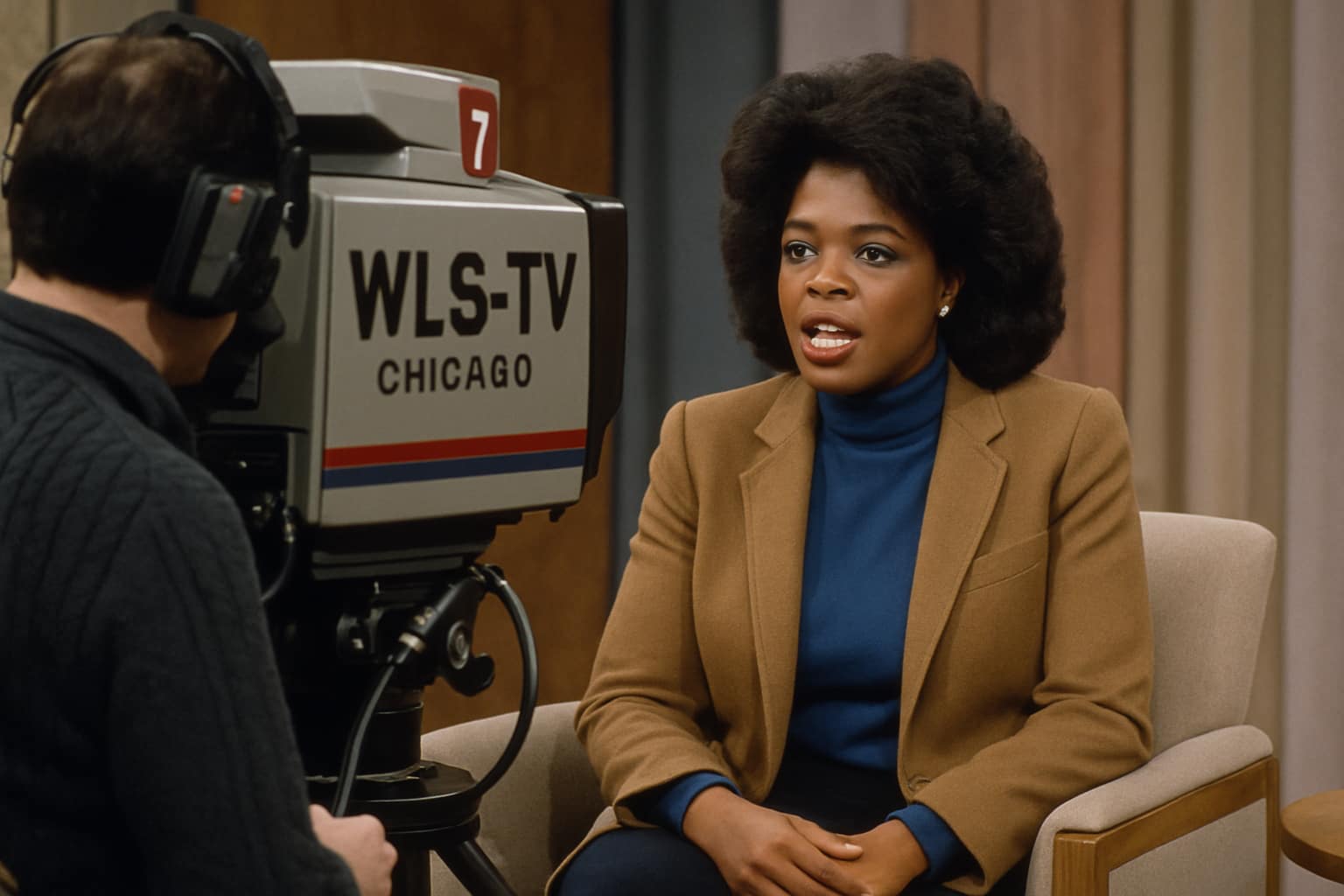
In January 1984, Oprah Winfrey made a bold choice that would elevate her from regional fame to national recognition. Chicago’s ABC affiliate, WLS-TV, offered her a chance to host AM Chicago, a failing 30-minute morning show. The program was struggling in last place, competing against giants like Phil Donahue and other established hosts. Many experts considered it a risky move, especially since Oprah was already thriving in Baltimore. But she saw beyond the risk. She recognized it as a rare opportunity to prove herself in one of the biggest media markets in America.
Moving to Chicago took incredible confidence and courage. Oprah left behind the safety of her Baltimore success to face a daunting professional challenge. The Chicago market had broken hosts before her—and now she’d be up against Phil Donahue himself. He was daytime TV’s reigning star, and few thought she could compete. Yet Oprah remembered what her father taught her. Real success often demands real risk—and she was ready to rise to the occasion.
The Miracle Transformation: Last Place to First in One Year
What followed Oprah’s takeover of AM Chicago can only be described as a media miracle. Within just one year, the struggling show rocketed from last place to the top of the ratings. The dramatic rise surprised industry veterans and proved Oprah was a powerful new voice in television. She didn’t just host a show—she transformed how people engaged with daytime TV. Her impact was immediate, undeniable, and far-reaching. Viewers responded to her like never before.
Unlike traditional hosts who stayed distant, Oprah embraced emotional honesty. She cried with guests, shared her past, and spoke with genuine vulnerability. This wasn’t a performance—it was real. Oprah’s authenticity created an emotional intimacy that daytime TV had never seen. Guests opened up because they felt truly understood. Viewers connected with her because she made their struggles feel seen. She redefined how empathy could work on screen.
Her extemporaneous delivery and conversational tone set her apart. She didn’t just present topics—she explored them alongside her audience. Each episode felt like a shared journey, not a staged production. Oprah’s style wasn’t just effective—it was revolutionary. It helped shift television into a platform for healing and human connection. This legacy would influence media long after the show ended.
The Birth of “The Oprah Winfrey Show”
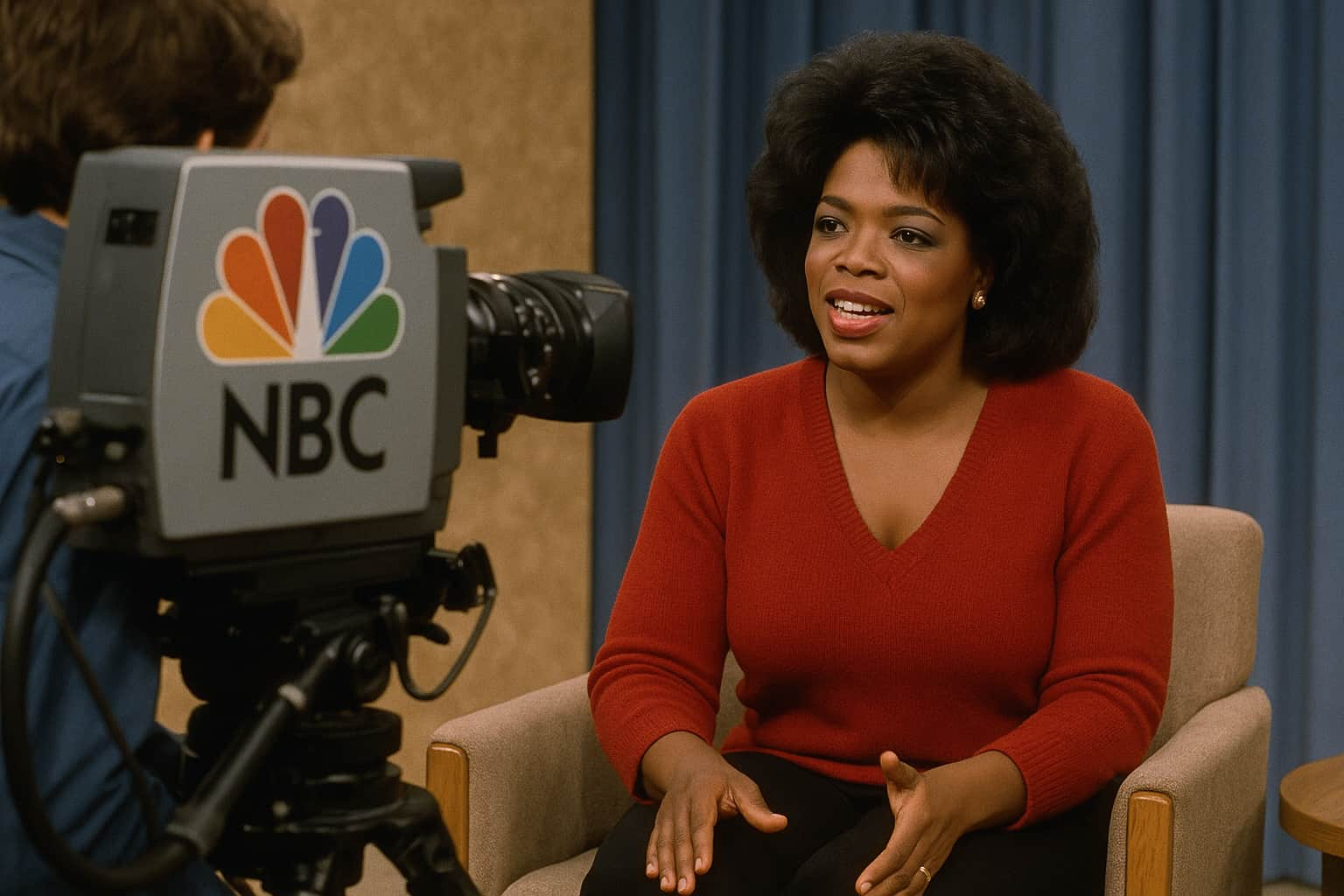
In 1986, AM Chicago was renamed The Oprah Winfrey Show and expanded from 30 minutes to a full hour.
The show’s first nationwide broadcast aired on September 8, 1986, marking the start of a legendary chapter in television history. At just 32 years old, Oprah became the first African-American woman to host a nationally syndicated talk show in the U.S.
This groundbreaking milestone shattered racial and gender barriers, opening doors for countless others in media and beyond.
The show’s national launch was an immediate success, quickly attracting a massive, devoted audience across the country. Within months, Oprah’s show doubled Phil Donahue’s viewership, surpassing his long-held dominance in daytime television. Their rivalry sparked intense media coverage, yet Oprah’s warmth, authenticity, and empathy made her the clear favorite among viewers. Her unique approach redefined what daytime television could be—emotional, personal, and deeply transformative for both guests and audiences.
Critical Acclaim and Cultural Impact
The success of The Oprah Winfrey Show went beyond ratings; critics and professionals saw a revolution happening in daytime television. Time magazine captured her appeal in a 1988 article that highlighted her unique presence in a white male-dominated field. “Few would’ve bet on Oprah’s rise,” it said, noting her difference in size, race, and interviewing style. The article stated she lacked journalistic toughness but made up for it with honesty, humor, empathy, and curiosity. Her approach broke away from traditional broadcasting expectations and connected deeply with everyday viewers.
The article continued: “Guests with sad stories often brought tears to Oprah’s eyes,” showing her rare emotional openness on TV. It explained how people shared personal truths they’d never tell others, even on national television. Her show became more than interviews—it turned into group therapy. That emotional intimacy redefined television’s role from just entertaining to healing. Oprah created a space where vulnerability was power, and connection was the goal.
Building a Media Empire: The Birth of Harpo Productions
Perhaps the most important business move Oprah made was launching Harpo Productions in 1986, named “Harpo” (Oprah spelled backward). This multimedia company made her the first Black person and only the third woman to control a major studio. It reflected Oprah’s vision and gave her ownership, unlike most TV hosts who worked under network contracts. Her decision showed impressive business sense and long-term thinking. By starting Harpo, Oprah took control of her brand, her work, and her future.
The creation of Harpo Productions changed how performers approached media ownership. Oprah could fully benefit from her projects instead of sharing profits. She had complete creative freedom and control over what stories she told. This shift empowered her to expand into film, print, and digital platforms. It also set a new standard for artist-led media ventures. Harpo became the engine of her empire—and one of the most financially rewarding choices of her life.
Key Business Moves: Building a Billion-Dollar Empire
The Ownership Revolution: Controlling Her Destiny
The most crucial business decision in Oprah Winfrey’s career was her insistence on maintaining ownership and control of her content. While most television personalities were content to work as highly paid employees, Oprah understood that true wealth and power came from ownership. Through Harpo Productions, she retained the rights to “The Oprah Winfrey Show” and all associated content, a decision that would prove to be worth billions of dollars over the course of her career.
This ownership structure was revolutionary in the television industry, where networks typically controlled all content and intellectual property. By maintaining ownership, Oprah ensured that she would benefit from syndication revenues, international sales, and all future uses of her content. This decision demonstrated remarkable business acumen and foresight, as it allowed her to build wealth not just from her salary but from the appreciation of valuable assets over time.
Strategic Diversification: Building Multiple Revenue Streams
Understanding that even the most successful television show would eventually end, Oprah began diversifying her business interests early in her career. This strategic approach to wealth building ensured that her financial success would not be dependent on any single source of income. Each new venture was carefully chosen to leverage her brand, expand her influence, and create additional revenue streams.
One of her earliest diversification moves was into film production. Through Harpo Productions, she co-produced several major motion pictures, including “Beloved” and “Selma.” These projects not only generated additional revenue but also enhanced her credibility in Hollywood and provided platforms for telling important stories that aligned with her values and mission.
The Magazine Empire: O, The Oprah Magazine
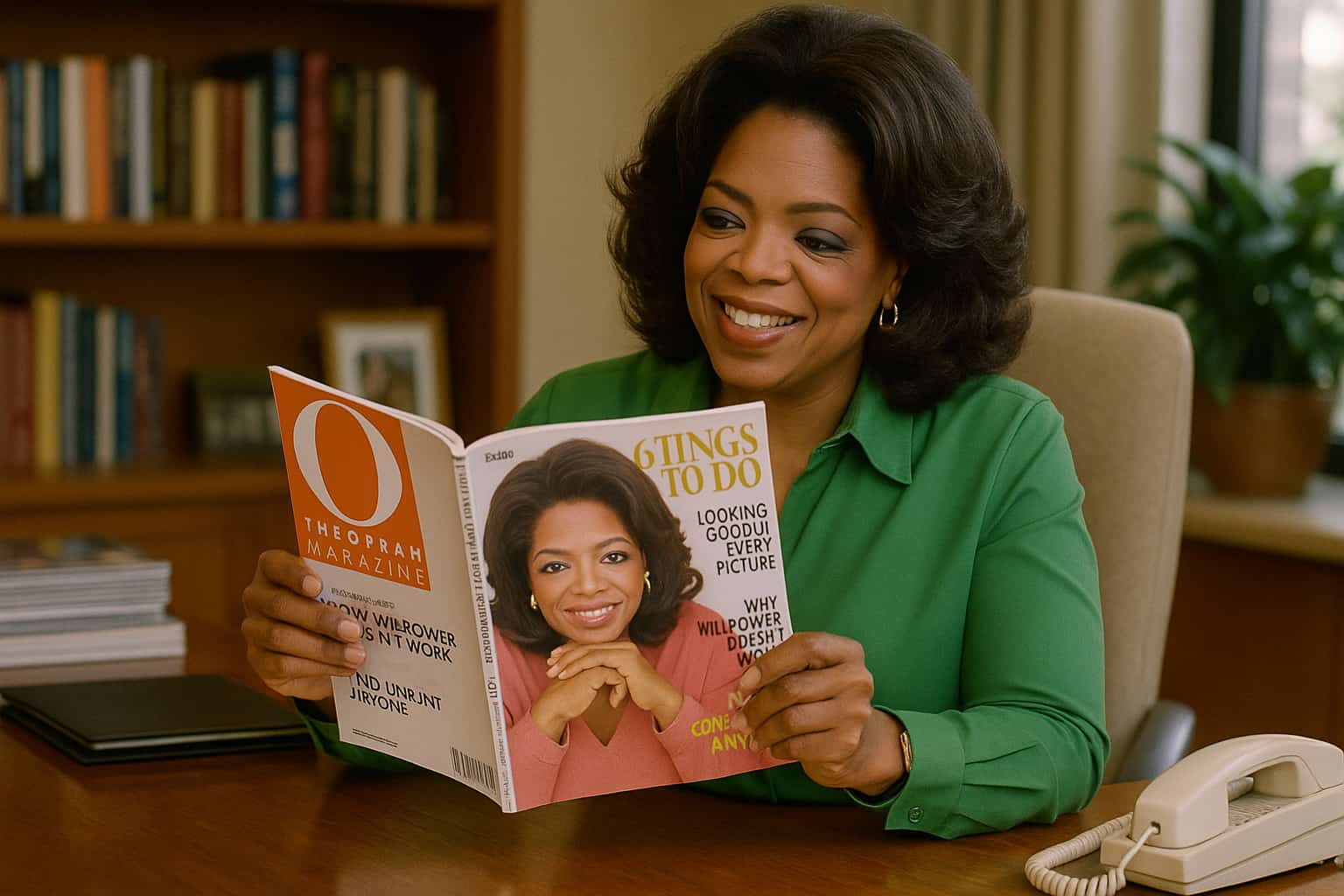
In 2000, Oprah launched “O, The Oprah Magazine” in partnership with Hearst Corporation. This venture represented a significant expansion of her brand into print media and demonstrated her ability to succeed across multiple platforms. The magazine was an immediate success, quickly becoming one of the most successful magazine launches in publishing history.
“O Magazine” was more than just a celebrity publication; it was an extension of Oprah’s philosophy and mission. The magazine focused on self-improvement, personal growth, and empowerment—themes that resonated strongly with her television audience. By maintaining editorial control and ensuring that the magazine reflected her values and vision, Oprah created a publication that felt authentic and trustworthy to her loyal followers.
The Book Club Phenomenon: Transforming Publishing
Perhaps no single business move demonstrated Oprah’s cultural influence more dramatically than the launch of Oprah’s Book Club in 1996. What began as a simple segment on her television show quickly became one of the most powerful forces in the publishing industry. Books selected for Oprah’s Book Club routinely became bestsellers, often selling millions of copies and transforming unknown authors into literary celebrities overnight.
The “Oprah Effect” became a recognized phenomenon in publishing, with publishers actively seeking her endorsement for their titles. Her book recommendations could single-handedly revive classic literature, launch new authors, and drive massive sales across the industry. This influence translated into significant revenue for Harpo Productions through partnerships with publishers and bookstores.
The Weight Watchers Investment: Strategic Partnership Success
One of Oprah’s most successful recent business moves was her 2015 investment in Weight Watchers International (now WW). She purchased a 10% equity stake in the struggling company and became its spokesperson, bringing her personal weight loss journey and massive influence to bear on revitalizing the brand.
The impact was immediate and dramatic. Weight Watchers’ stock price soared following the announcement of Oprah’s involvement, and the company experienced a significant resurgence in membership and revenue. Oprah’s investment reportedly increased in value by hundreds of millions of dollars, demonstrating her continued ability to create value through strategic business decisions.
The OWN Network: Building a Television Empire
After ending “The Oprah Winfrey Show” in 2011, Oprah launched the Oprah Winfrey Network (OWN) in partnership with Discovery Communications. This cable network represented the ultimate expression of her media empire—a 24-hour channel dedicated to programming that reflected her values and vision.
While OWN faced initial challenges and took several years to find its footing, it eventually became a successful and profitable venture. The network provided a platform for diverse voices and stories that might not find homes on other networks, fulfilling Oprah’s mission of using media for positive social impact while also generating substantial revenue.
The Billionaire Achievement: Reaching the Pinnacle
In 2003, at age 49, Oprah Winfrey achieved billionaire status, becoming the first Black woman to reach this milestone. This achievement was the result of decades of strategic business decisions, careful wealth management, and the compound growth of her various investments and ventures. Her net worth continued to grow over the following decades, reaching $3.1 billion by 2025 according to Forbes.
The path to billionaire status was built on several key principles: maintaining ownership of her content, diversifying across multiple revenue streams, leveraging her personal brand and influence, and making strategic investments that aligned with her values and mission. Each business decision was carefully considered not just for its immediate financial impact but for its long-term potential and its alignment with her overall vision.
Legacy & Lessons Learned: The Enduring Impact of an Extraordinary Life
A Legacy That Transcends Wealth

While Oprah Winfrey’s financial success is undeniably impressive—with a net worth of $3.1 billion making her one of the wealthiest self-made women in history—her true legacy extends far beyond monetary achievements. She has fundamentally changed how we think about media, communication, and the potential for personal transformation. Her influence on American culture and society is immeasurable, touching everything from literature and education to social justice and philanthropy.
Oprah’s legacy is built on the revolutionary idea that media can be a force for healing, education, and empowerment rather than simply entertainment or profit. Through her various platforms, she has consistently used her influence to elevate important conversations, promote literacy and education, and inspire millions of people to live their best lives. This approach has created a new paradigm for celebrity and influence that prioritizes service and social impact alongside commercial success.
The Transformation of Daytime Television
Perhaps nowhere is Oprah’s impact more evident than in the transformation of daytime television. Before Oprah, talk shows were primarily focused on sensational topics designed to shock and entertain. She revolutionized the format by introducing genuine empathy, emotional authenticity, and meaningful content that spoke to viewers’ hearts and minds.
Her approach created what critics called “the talk show as group therapy session,” where guests felt safe to share their most personal stories and viewers felt genuinely connected to the content. This transformation influenced an entire generation of broadcasters and established new standards for what television could accomplish. The “Oprah Effect” became a recognized phenomenon not just in publishing but across all forms of media.
Educational Impact and Literacy Promotion
One of Oprah’s most significant contributions to society has been her promotion of education and literacy. Through Oprah’s Book Club, she single-handedly revived interest in reading among millions of Americans, turning literature into a shared cultural experience. Her book recommendations consistently became bestsellers, and her discussions of these books elevated the level of public discourse about literature and ideas.
Beyond the Book Club, Oprah has consistently used her platform to promote education and learning. She has funded numerous educational initiatives, including the Oprah Winfrey Leadership Academy for Girls in South Africa, which provides world-class education to disadvantaged young women. Her commitment to education reflects her deep understanding that knowledge and learning are the keys to breaking cycles of poverty and creating lasting change.
Philanthropic Leadership and Social Impact
Oprah’s philanthropic efforts have been as strategic and impactful as her business ventures. Through the Oprah Winfrey Charitable Foundation, she has donated over $400 million to various causes, with a particular focus on education, women’s empowerment, and children’s welfare. Her giving is not just about writing checks; she actively engages with the organizations and causes she supports, using her influence to amplify their impact.
Her philanthropic philosophy is rooted in the belief that those who have been blessed with success have a responsibility to help others. This approach has inspired countless other wealthy individuals to increase their charitable giving and has helped establish new standards for celebrity philanthropy. Her work has directly improved the lives of thousands of individuals while also inspiring broader social change.
Breaking Barriers and Creating Opportunities
Throughout her career, Oprah has consistently broken barriers and created opportunities for others, particularly women and people of color in the media industry. As the first Black woman to host a nationally syndicated talk show, she opened doors that had previously been closed and demonstrated that success was possible regardless of race or gender.
Her production company, Harpo Productions, has provided opportunities for countless writers, producers, directors, and performers who might not have found platforms elsewhere. Through OWN, she has continued to create opportunities for diverse voices and stories that reflect the full spectrum of human experience. This commitment to inclusion and representation has had a lasting impact on the entertainment industry.
Lessons in Resilience and Transformation
Perhaps the most powerful lesson from Oprah’s life is the possibility of complete personal transformation. Her journey from an abused, impoverished child to one of the most successful and influential women in the world demonstrates that our past does not have to define our future. This message has resonated with millions of people who have faced their own challenges and traumas.
Oprah’s willingness to share her own struggles—including her experiences with abuse, addiction, and weight issues—has helped destigmatize these problems and encouraged others to seek help and healing. Her openness about her own journey has made her a powerful advocate for mental health awareness and personal growth.
The Power of Authenticity in Business and Life
One of the most important lessons from Oprah’s success is the power of authenticity in both business and personal relationships. In an industry often characterized by artifice and manipulation, Oprah’s genuine personality and sincere concern for others set her apart and created deep trust with her audience.
This authenticity was not just a marketing strategy; it was a fundamental aspect of who she is as a person. Her success demonstrates that being true to yourself and your values can be a powerful competitive advantage, creating connections and loyalty that cannot be manufactured or replicated.
The Service-First Philosophy
Throughout her career, Oprah has consistently prioritized service over success, believing that true fulfillment comes from helping others rather than pursuing personal gain. This philosophy is captured in one of her most famous quotes: “If you want to have success, you can’t make success your goal. The key is not to worry about being successful but to instead work toward being significant—and the success will naturally follow.”
This service-first approach has guided all of her major decisions, from the content of her television show to her business ventures and philanthropic efforts. It demonstrates that it’s possible to build extraordinary wealth and influence while also making a positive impact on the world.
Lessons for Entrepreneurs and Leaders
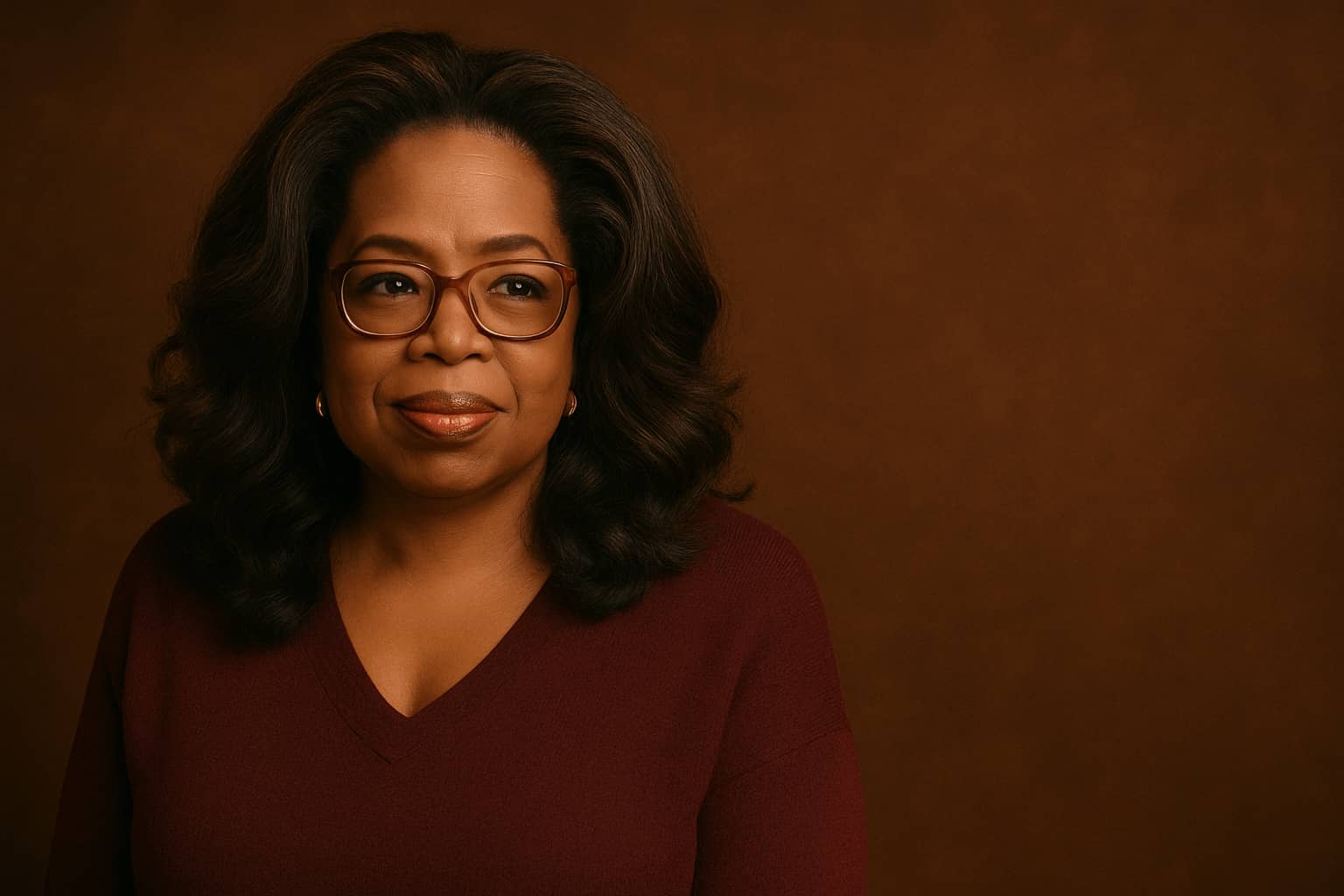
Oprah Winfrey’s journey offers numerous lessons for current and aspiring entrepreneurs and leaders:
Ownership Matters: Her insistence on maintaining ownership of her content and intellectual property was crucial to building lasting wealth. Entrepreneurs should prioritize equity and control whenever possible.
Diversification is Essential: Building multiple revenue streams and not relying on any single source of income provided stability and growth opportunities throughout her career.
Authenticity Creates Connection: Being genuine and true to your values can be a powerful differentiator in any industry or market.
Education Never Stops: Oprah’s commitment to continuous learning and growth has been a constant throughout her career. Successful leaders must remain curious and open to new ideas.
Service Leads to Success: Focusing on how you can serve others rather than what you can gain for yourself often leads to greater long-term success and fulfillment.
Resilience is Learnable: The ability to overcome setbacks and transform challenges into opportunities is a skill that can be developed through practice and persistence.
A BLUEPRINT OF TRANSFORMATION
Oprah Winfrey’s life story provides a blueprint for personal and professional transformation that can inspire anyone facing challenges or seeking to create positive change in their own lives. Her journey demonstrates that with the right combination of resilience, authenticity, hard work, and service to others, it’s possible to overcome even the most difficult circumstances and achieve extraordinary success.
Her legacy reminds us that true success is not just about accumulating wealth or achieving fame, but about using whatever platform or influence we have to make a positive difference in the world. In an era of increasing inequality and social division, Oprah’s example of using success as a force for good provides a powerful model for how we can all contribute to creating a better world.
The story of Oprah Winfrey is ultimately a story about the unlimited potential that exists within each of us. Her transformation from a traumatized child in rural Mississippi to a global icon and billionaire entrepreneur proves that no dream is too big and no obstacle too great when we combine determination with purpose and service to others. Her life stands as a testament to the power of the human spirit and the possibility of creating extraordinary change in our own lives and in the world around us.
For anyone seeking inspiration or guidance on their own journey from struggle to success, Oprah’s story offers both hope and practical wisdom. Her legacy will continue to inspire future generations of entrepreneurs, leaders, and change-makers who understand that true success comes not from what we achieve for ourselves, but from what we do to lift others up along the way.
- About The Phoenix Ascent
- George Foreman: The Ultimate Comeback Story That Proves Success Isn’t About Luck
- Mark Cuban: From Selling Garbage Bags to Building a $5.7 Billion Empire
- From Bullied Dropout to Billionaire: The Extraordinary Rise of François Pinault
- From Desert Sands to Billion-Dollar Empire: The Extraordinary Journey of Mohed Altrad
Sources:

